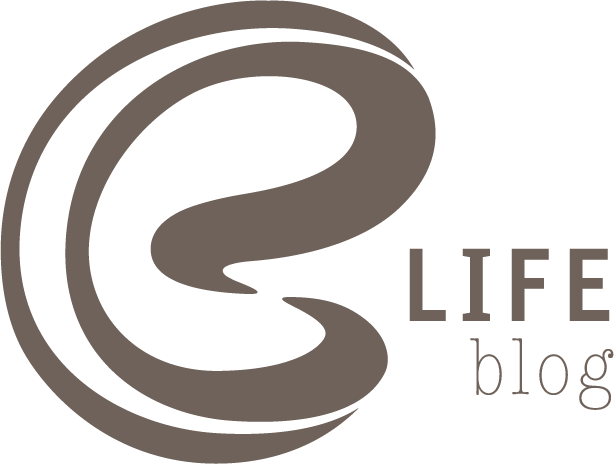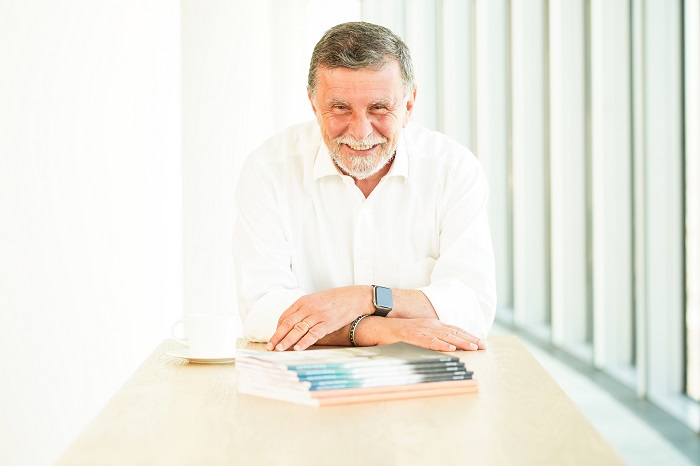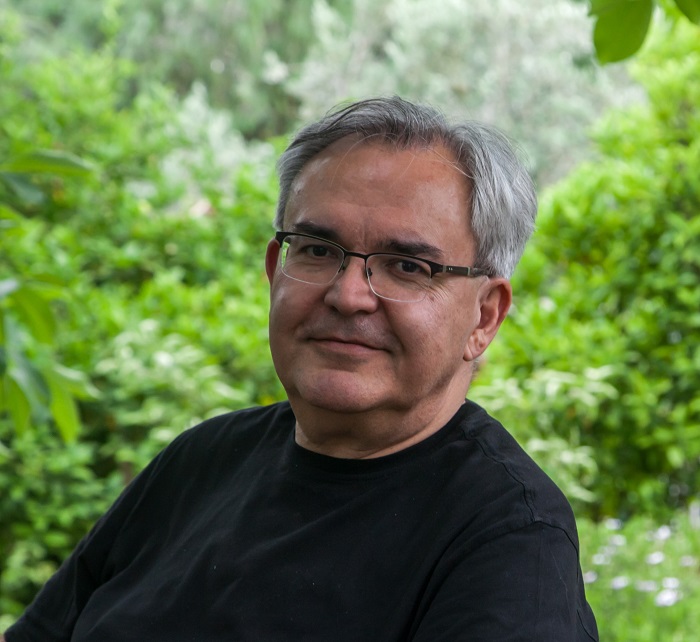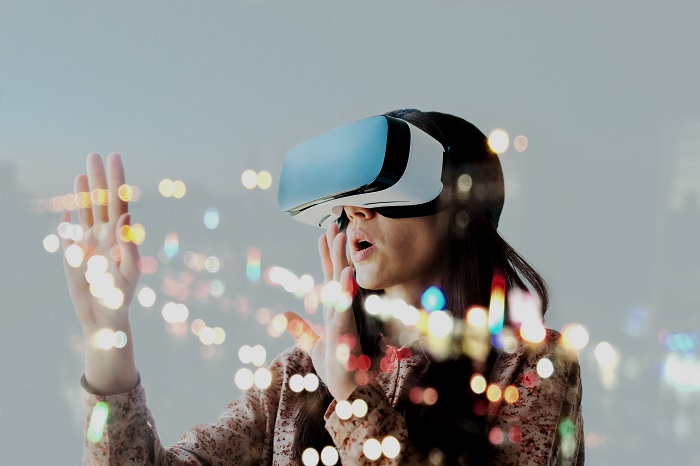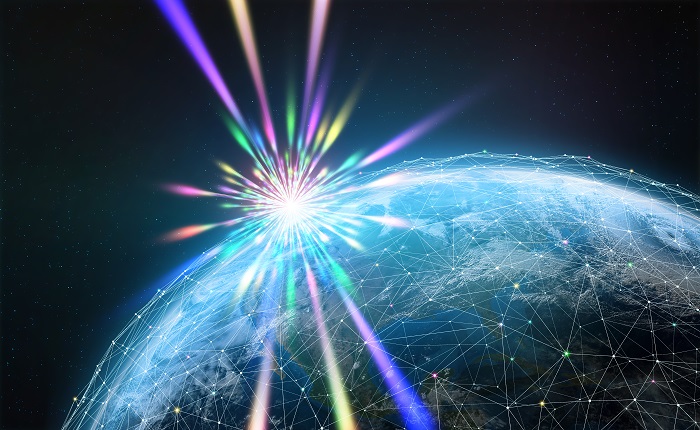We've already stepped into a new era. Globally, the dynamics that shape economic models are changing. The rise of artificial intelligence-based technologies is replacing industrial age norms. Perhaps more than ever before, nations are facing the same issues: climate crisis, migration, depletion of earth's resources, economic instability... So, how prepared is the world for this new era and how can it adapt to this rapid transformation? Faruk Eczacıbaşı, Vice Chairman of Eczacıbaşı Holding and President of the Turkish Informatics Foundation (TBV), and Prof. Dr. Güven Sak, Economist, Academician and Executive Director of the Economic Policy Research Foundation of Türkiye (TEPAV), have engaged in a discussion about the future of the planet, societies, and the business world...
Could you share your insights and predictions for this era of rapid change, which you refer to as the age of disruption?
Faruk Eczacıbaşı: If we agree that the "industrial age" concluded with the advent of the internet, I'd term the subsequent era as "the age of disruption." Each disruption expands our set boundaries, augments individual freedom, bypasses control mechanisms, and perhaps most importantly, erodes narratives.
Narratives form the bedrock of societies and shape fundamental visions. I believe the most pressing issue currently is that traditional narratives are becoming outmoded and aren't being replaced with new ones. Our world is on the brink of numerous known threats, yet we drag our feet in our preparations. Global warming, pollution, energy sustainability, and depletion of natural resources are all potential threads of a new global narrative.
Due to this narrative deficit, the data production and analysis supporting the new economy are being used to uphold past industrial era visions rather than foster a global perspective. This not only harms the planet but also amplifies inequalities. However, this data power can be leveraged for an entirely different narrative. Today, the rapid pace of technological changes often leaves us feeling confused. In this confusion, technology's direction is influenced by our actions.
By establishing a narrative that focuses on future challenges, and by meeting legal and governance requirements, we can guide technology towards the right path. However, it’s crucial to identify the issue, work on it, and approach it seriously with a long-term perspective.
What dynamics will shape the new world order?
Güven Sak: Today, there’s a significant crisis of trust at the global, regional, and national levels. Traditional channels of communication and topics of conversation have largely faded away, and the new ones haven't fully evolved yet. This situation has led to a crisis of trust among countries. Why is this happening? We know we're undergoing a profound transformation driven by technological changes, but the exact direction and impact of this shift remain unclear. Everyone is closely watching each other.
Distrust is evident at regional and national levels. In Türkiye and beyond, many countries face the challenge of altering their business models, ranging from Russia in the north to Saudi Arabia in the south. Adapting to change is not easy for anyone. These countries will transition from one state to another, abandoning their comfort zones and adapting to unfamiliar circumstances.
This change is also causing a profound crisis of insecurity at the national level. How does this happen? The transformation process engenders income disparities and losses, leading to widespread distrust, dissatisfaction, and backlash in societies. This is evident in events such as Trump's presidency, the rise of the far right in Europe, and the increasing influence of non-systemic movements, including in Türkiye.
In this era of significant changes across politics and economy, everyone is striving to minimize the impact and maintain their standing, while trust is scarce. We’re in an unprecedented time. It’s challenging to forge the new with outdated communication channels, cooperation mechanisms, political parties, and understandings.
It's unthinkable that different social segments within countries should cease all communication with each other. So, the question is, how can we regain lost trust in this climate? How can we establish new cooperation mechanisms? Clearly, we cannot foster mutual trust and respect by avoiding engagement, communication, or staying isolated in our own spheres.
We currently face a range of transnational threats. The recent pandemic was one, as is climate change. Refugee movements and the fight against extremism share similar characteristics. So, how did we end up here? When I was born, we had a world population of around three billion; now, it has surged to over eight billion. Additionally, our consumption patterns are becoming increasingly similar. These transnational threats are intimately linked to the upheavals caused by this swift transformation. Technological advancements have further accelerated this change, spawning new threats that we now struggle to manage.
It's impractical to address all these problems within a single nation. If we fail to find solutions, the upheavals will intensify, and the crisis of trust will deepen. So, what's our next move?
For example, we should centralize policy dialogue on climate change within a new system of engagement. We should collaboratively seek solutions to the increasing common threats of this era. In fact, I believe every bilateral issue can be addressed within this novel framework. We need to increase our dialogue and take collective action to rebuild trust.
What does managing unpredictability mean in times like these?
Faruk Eczacıbaşı: I wish to pose the question, "Does 'unpredictability' arise from our ingrained thought patterns and institutional structures?" I believe that once we discard our taboos and are willing to venture into the unknown, we may gain greater control over this "unpredictability." Today, we often struggle with solving our own internal issues. Yet, wherever you go, the root causes remain the same. They merely manifest differently due to cultural, historical, or managerial factors.
If future problems are global, we need to infuse a global perspective into our narratives and shape the basic structure accordingly.
It took 68 years for airplanes to serve 50 million passengers. Television took 22 years to reach the same level of ubiquity. The internet achieved this feat in seven years. ChatGPT did it in two weeks. The rapid rise of generative artificial intelligence has raised alarm bells among governments, underscoring the unpredictability we discussed. The US, China, and the European Union each responded by implementing three separate systems, reflective of their individual philosophies. The EU may have delved somewhat deeper into future implications. However, given these structures across borders, I think it’s essential to base them on a set of common principles applicable to our planet. The span of "unpredictability" is shrinking, but for now, our planet is all we have. We need to conserve our resources for many generations to come.
How do you perceive the concepts of sustainability and innovation within today's economic context? Also, what roles do you anticipate these concepts will play in the future of the world and the Turkish economy?
Güven Sak: New challenges call for new approaches. As the nature of problems evolves, so must our approach to resolving them. While we cannot predict the specific political and social impacts of today's technological advancements, we can use these new technologies to increase predictability in the medium term. In fact, we can instigate change within organizations and steer academia towards anticipated needs by implementing the appropriate policy tools. The key is to acknowledge that the toolkit is changing in this new landscape, and our strategies must adapt accordingly.
For instance, in line with regulations that mandate green transformation, AI-based material platforms can determine what materials are needed in the textile value chain and expedite the development of these materials. They can also be used to guide the development of new types of machinery necessitated by these materials and to determine employee models and skill sets based on data. Additionally, predictive models can identify the crucial starting point for companies to undertake transformation for both economic and environmental sustainability. We can think of more examples; but the key point is to understand that as the nature of issues evolves, we require new tools and approaches, and we must prepare accordingly.
On the other hand, consider this scenario: If technological advancements are intended to replace human labor across all sectors in response to the Western aging crisis, it could trigger a large migration from regions with younger populations, potentially escalating extremism and transnational threats.
This necessitates a reevaluation of our approach to sustainability and innovation, taking into consideration the unique circumstances of each location. Technological advancements and the process of innovation should not result in a one-size-fits-all solution. Instead, we need to identify shared solutions for our common problems, such as transnational threats, while acknowledging the specificities of each region. Is it straightforward? No, but it's a necessary starting point.
The Republic of Türkiye has just entered its second century. Given the global changes, what are Türkiye's advantages in this new era? As the President of the Turkish Informatics Foundation, how do you envision Türkiye's position in the age of technology?
Faruk Eczacıbaşı: However important our regional location and economy may be, I believe that Türkiye's greatest asset is its human capital. I prefer not to confine this issue within geographical boundaries. Despite recent concerns about the "brain drain," our intellectual capacity is deeply rooted in this region. As we enter a new century, I hope to see Türkiye leaving its mark on the world.
What should be the foundations of Türkiye's new narrative as it steps into the new century of its republic?
Güven Sak:
During this period of rapid technological change, it’s crucial to avoid being left behind. The ongoing green and digital transformation will alter fundamental aspects of our trade and lifestyle. As we transition, we need to plan ahead to ensure fairness and prevent increased unhappiness and inequality.
Our proximity to the EU, currently the wealthiest market globally, serves as an advantage. This allows us to implement structural reforms for decarbonization and digitalization effectively by modernizing the Customs Union. It's worth noting that the EU has the capability to influence other countries, unlike the US.
I believe that the main narrative of the new century is one of consultation, dialogue, and trust-building. We need to repeat the actions to mobilize the population for independence at the onset of the first century in Erzurum, Sivas, Izmir, and Ankara. Türkiye's Europeanization process will continue, with the modernization of the Customs Union serving as a crucial mechanism. Indeed, the European Union is a strategic priority for Türkiye.
Are you optimistic or pessimistic about the world's future? Why?
Faruk Eczacıbaşı: Unpredictability carries both risks and possibilities. In fact, every disruption narrows the distance between countries’ level of development. The task ahead is to properly adjust the pace and view this narrowing gap as an opportunity.
Güven Sak: Being pessimistic serves no purpose. If pessimists had their way, the world would have been destroyed multiple times since the 1950s. Yet, it hasn't. I am an optimist, and life is inherently optimistic. The significance of Türkiye in the first century hasn't diminished but rather grown.
At this juncture, it's crucial that we learn to view Türkiye and global trends in a medium-term perspective, that we avoid getting swayed by transient tremors. Maintaining focus in the right direction is key. Change often presents new opportunities, so it's beneficial to concentrate on these opportunities. We need to focus not on the doors that are closing, but on the doors that are opening.
